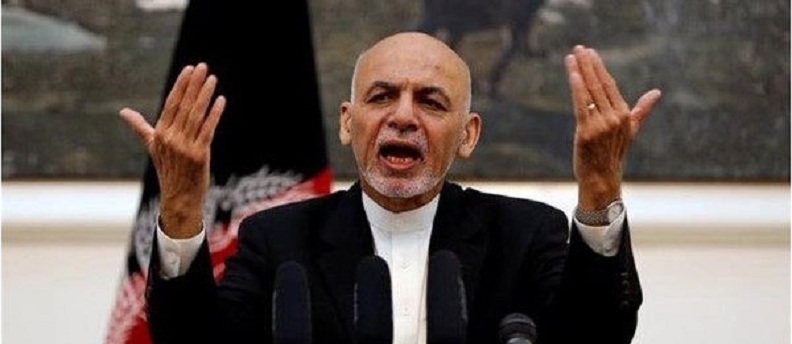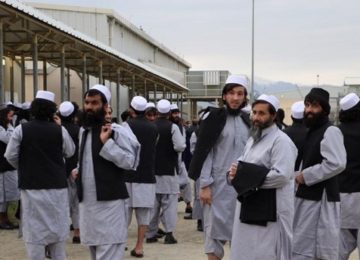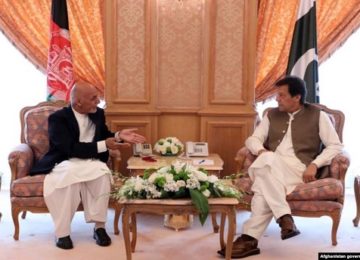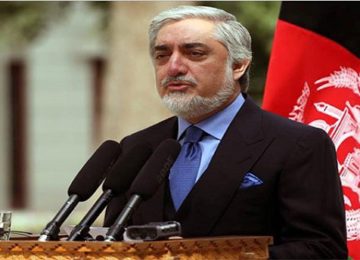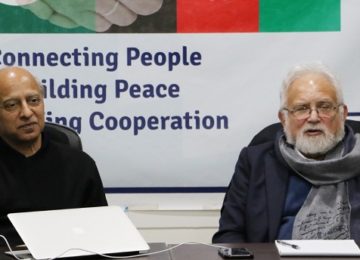Pakistan needs to step up its game to counter accusations of Afghan bloodshed
Political temperatures spiked to unprecedented levels with a May 31 terrorist attack in Kabul that has left about 150 people dead. Afghan President Ashraf Ghani gave out this figure in his inaugural speech to the delegates from 23 nations at the Kabul Process Summit on June 6.
With this attack, the death toll in six high-profile attacks in the capital since January touched a gutting figure of nearly 400. The human losses across Afghanistan in the first five months of the year stand close to a staggering 800 civilians (almost 3,500 fell to terrorism in 2016).
In his speech, Ghani, the host, surprisingly unleashed an unprecedented open attack on Pakistan for what he said was “waging an undeclared war of aggression” against his country”. Wittingly or otherwise, unfortunately, Ghani painted Pakistan as black as he could. But his words were contradictory too; we don’t want to be drawn into a blame game, he said, but in the next breath he spoke of “undeclared aggression by Pakistan”.
The president’s anti-Pakistan tirade came against the backdrop of a spiraling security crisis, extreme political polarization in Kabul itself and acute differences with his own Chief Executive Dr. Abdullah Abdullah and foreign minister and head of the Jamaat-e-Islami, Salahuddin Rabbani. The latter has demanded an investigation into the deadly attacks and the dismissal of National Security Advisor Hanif Atmar. Rabbani told the press on June 5 that the attacks in Kabul might have been carried out in collusion with some security agencies. Ironically, security officials had told the media that the Haqqani network and the ISI orchestrated these attacks.
Strangely, the claimant for this carnage was Daesh and not the Taliban, who denied any role, which explains the demands made by Rabbani and others for an investigation into the violence.
It also probably is instructive for Afghans to look at Pakistan through their own prism. Applying the Indian lens on Pakistan will only continue hurting Afghanistan and its people.
What to make of it?
Ghani’s latest speech makes one shiver. What are he and his cohorts up to? When blaming Pakistan for the ”undeclared war of aggression” are they; (a) Ruling out the role of geopolitics around Afghanistan; (b) Exonerating themselves of their own responsibility i.e. acute political differences and polarization; © Accusing Russia, Turkey, Iran and China for supporting Pakistan in this “war of aggression”? Ghani’s statement would also imply that all five regional countries have concocted a well-veiled global conspiracy against Afghanistan and his government; (d) Denying flat out that Afghanistan is part of the Indian policy of boxing in Pakistan (Ghani’s June 6 speech being the latest example); (e) Not realizing the colossal security costs for the hapless millions of Afghans as a result of their current policies?
The Gordian knot
Let us look at the paradoxes of the current situation in Afghanistan. Ghani renewed his invitation to the Taliban at the Kabul Summit for peace talks at a “mutually agreeable” venue, promising the insurgents they eventually will be allowed to open a representative office if significant progress is made.
A Taliban spokesman rejected Ghani’s latest offer (which the president called the last chance) for a peace dialogue and denounced Tuesday’s gathering in Kabul as another attempt to “endorse and prolong foreign occupation” of Afghanistan.
Only a day earlier, US defense secretary Gen. James Mattis rejected the Taliban as interlocutors saying to the media at Sydney, “we are up against an enemy that knows it cannot win at the ballot box, that’s why [it] uses bombs… The bottom line is that we are not going to surrender civilization to people who cannot win at the ballot box.”
Other regional powers such as China, Russia, Iran, Turkey and Pakistan take a contrary view on the Taliban. Moscow, Beijing, Islamabad and Tehran see IS in Afghanistan as a greater threat to their internal security and hence support open negotiations with the Taliban which they perceive as a lesser danger because it does not wish to expand beyond Afghanistan. Even former President Hamid Karzai views Daesh/IS as the product of external forces.
This therefore begs the big question: who is calling the shots in Afghanistan, Ghani, India or the US, which pays most of the $5 billion or so for the Afghan security forces?
Tasks ahead for Pakistan
Pakistan participated in the Peace Summit in an atmosphere loaded with animosity and suspicion. President Ghani turned the heat up by pointing an accusatory finger at Pakistan as being the sole source of his country’s troubles, whereby going by his assertion, he should have also mentioned Turkey, Iran, China and Russia.
This makes life harder for Pakistan and requires it to be intelligently proactive and strategic.
Full membership of the geo-politically important Shanghai Cooperation Organization, China’s strategic-economic embrace through the China Pakistan Economic Corridor, and geopolitical alignment with China, Russia, and Turkey plus a shared vision with Iran on the future of Afghanistan are undeniably strong factors that must give Pakistan courage and confidence to pursue its own national security interests and articulate its priorities as well as limitations more diligently.
Firstly, the current political and military crisis in Afghanistan and the external jockeying for geopolitical influence complicates the situation. It also probably is instructive for Afghans to look at Pakistan through their own prism. Applying the Indian lens on Pakistan will only continue hurting Afghanistan and its people.
The world at large should support the Afghan security forces because only their institutional strength can lend the Kabul government the means to pursue reconciliation with authority, officials at the ministry of foreign affairs and the General Headquarters say.
Secondly, playing up its counter-terror efforts, Pakistan needs to convincingly convey to the world that it has neither any favourites in Afghanistan nor does it rely on any proxies. One would hope this to be true because the bitter experiences of the last 15 years should be more than enough of a lesson that an economically fragile country can ill afford to ape big powers such as the United States in leaning on proxies.
This, of course, is Pakistan’s Achilles heel since critics continue to point to the, “Taliban sanctuaries and the indirect support for them.” Often, such talk centres on the Haqqani and Taliban businesses in Pakistan. But this postulation overlooks the fact that not every Haqqani is a terrorist. Nor is every terrorist is a Haqqani or Taliban follower. Currently, according to Afghanistan’s National Directorate of Security some 30 terrorist groups are operating in the country, with the Haqqanis and Taliban being just two. Osama bin Laden, for instance, was the most wanted global terrorist but his family continues to hold and run businesses in Saudi Arabia, the Gulf and even the United States. Does this count as support from these countries for OBL’s terror mission?
Pakistan needs to go after all those terrorists at Kabul’s pointation. This will certainly help revive bilateral trust and would also reflect the readiness to counter terrorism.
Thirdly, with clouds looming for a third Afghan war gathering, Pakistan should impress upon Kabul to jointly implement border management protocols that were agreed on between the two armies in 2012. It included critical points such as trade, illegal crossings, and border security post management.
Ownership of Afghan Policy
Fourth, Pakistan’s Afghan policy requires both the military and civilian prongs to work in tandem, something urgently needed to create national and international buy-in of what Pakistan does when it comes to Afghanistan.
Relatively muted responses to the latest string of allegations by Kabul’s security establishment also highlight the civilian government’s paralysis on the foreign policy front.
Blunting and disproving of foreign accusations is the job of the government and not the military, which stands out as a suspect any way (in the eyes of Afghans and Indians). Staying mum or issuing routine denials or condemnations help little.
Why should such statements flow out of GHQ alone? Why can’t the civilian government reiterate its offer of support in counter-terrorism to Afghanistan and also take the bull by the horns in case of slander and misplaced accusations from across the border?
Unless the civilian ruling elites step out of their comfort zones to jointly own and lead the security/foreign policies, Pakistan might be in a trouble much more severe than what it has faced since the Soviet-Russian invasion and occupation of Afghanistan.
The author Imtiaz Gul is the Executive Director of the Center for Research and Security Studies (CRSS). This article originally appeared in The Friday Times on June 09, 2017. Original link.



